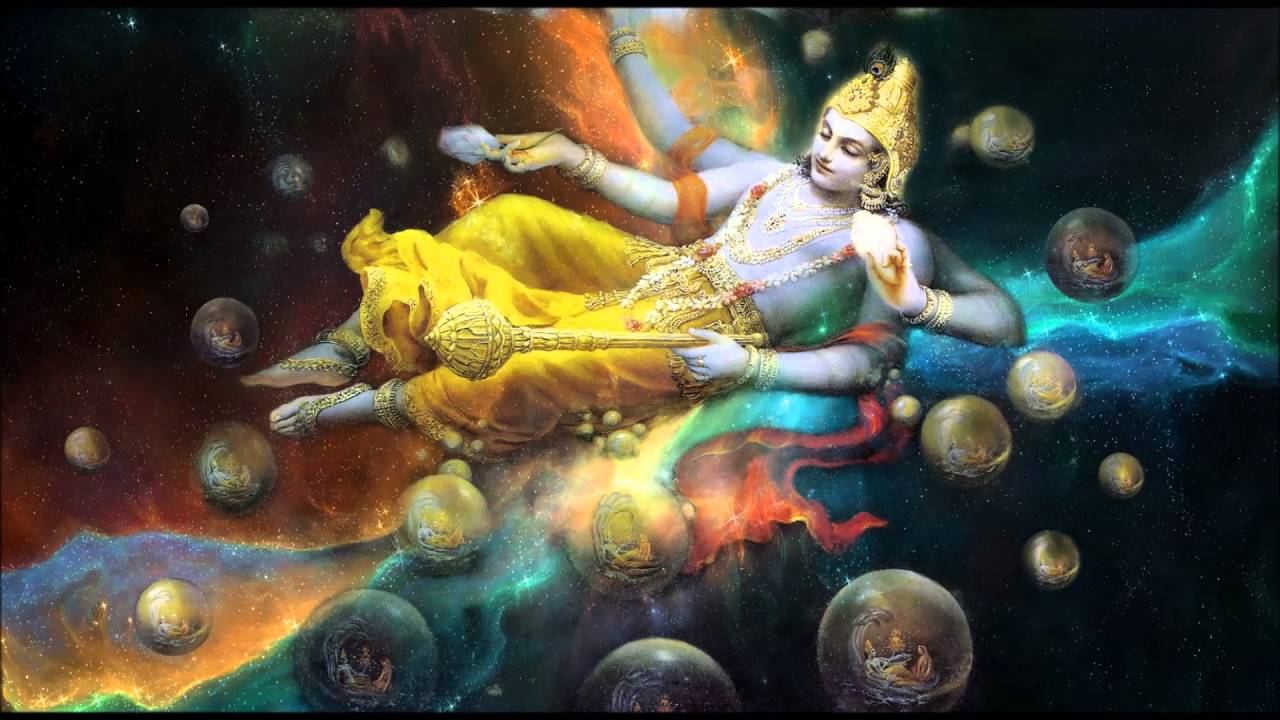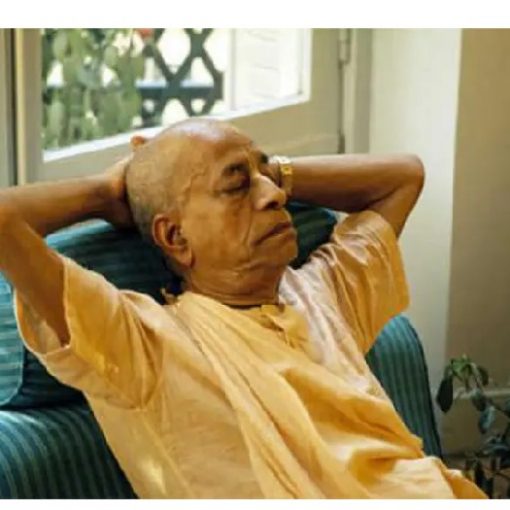Impersonalists always think backwards. They think that because there is form in matter, spirit should be formless; because in matter there is sleep, in spirit there cannot be sleep; and because the sleeping of the Deity is accepted in arcanā worship, the arcanā is māyā. All these thoughts are basically material. To think either positively or negatively is still thinking materially. Knowledge accepted from the superior source of the Vedas is standard. Here in these verses of the Śrīmad-Bhāgavatam, we find that arcanā is recommended. Before Brahmā took up the task of creation, he found the Lord sleeping on the serpent bed in the waves of the water of devastation. Therefore, sleeping exists in the internal potency of the Lord, and this is not denied by pure devotees of the Lord like Brahmā and his disciplic succession. It is clearly said here that the Lord slept very happily within the violent waves of the water, manifesting thereby that He is able to do anything and everything by His transcendental will and not be hampered by any circumstances. The Māyāvādī cannot think beyond this material experience, and thus he denies the Lord’s ability to sleep within the water. His mistake is that he compares the Lord to himself — and that comparison is also a material thought. The whole philosophy of the Māyāvāda school, based on “not this, not that” (neti, neti), is basically material. Such thought cannot give one the chance to know the Supreme Personality of Godhead as He is.
Reference:- SB 3.9.21





